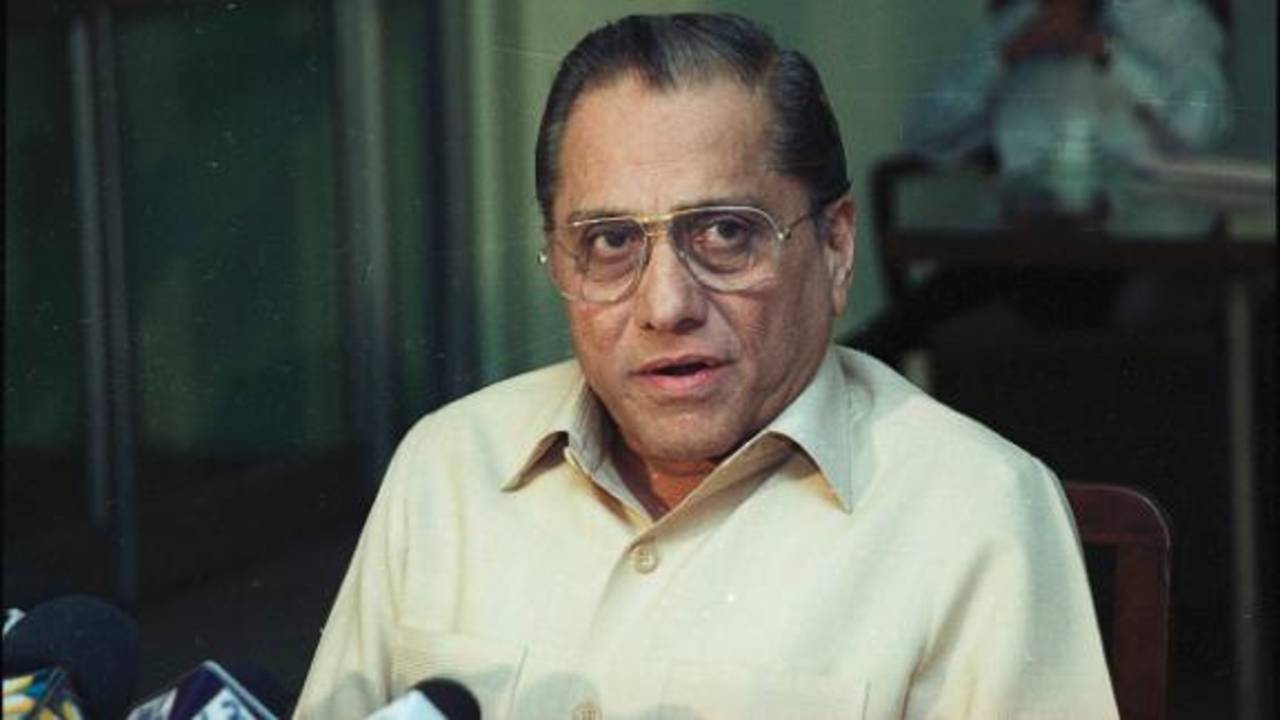'He did a hell of a lot for the game'
Jagmohan Dalmiya held the game's finances and its overall health in excellent balance. History should judge him very kindly
Ian Chappell
21-Sep-2015
I'll never forget the first time I met Jaggu. We were in Calcutta in the lead-up to the 1996 World Cup. I was there as an ex-captain, we did a thing inside Salt Lake Stadium and he said we've got a motorcade going back. I asked him if it'll be worth doing it and he said 'Ian, it'll be one of the great experiences of your life.' I went on that motorcade and I had never seen so many people in my life. And so many happy people, throwing flower petals, waving, smiling.
I remember I was standing next to Mark Burgess, the ex-New Zealand captain, and I remember asking him, 'Burgee, how many people do you think we've passed?' and he said 'I don't know, but it's more than the population of New Zealand.' At that stage I think that was about three-and-a-half million. So Jaggu was absolutely spot on, it was a memorable experience. So memorable I went back to the hotel and rang my wife to tell her about it that evening. That sort of set me off with Jaggu.
He copped a lot of criticism in Australia from the administrators and I think it was because he outsmarted them over the 1996 World Cup and got it to the sub-continent. I remember I'd heard a few of these accusations and I had put them to Jaggu. He listened to them all and he answered them all very genuinely. I went back and I told one of the Australian administrators what his answers were. And he said, ask him about offering money to different countries to get the hosting. So I asked Jaggu that the next night. He smiled and said 'Ah, the Australians would know about giving money to other countries, that's how they got the 1992 World Cup.' And then there was a pause, a very effective pause, and he said 'I just offered them more.'
I thought to myself then, here's a very smart man. A man that I wouldn't like to have as an enemy.
To me Jaggu was a rarity amongst administrators because he genuinely wanted to listen to the opinions of former players. I felt he also wanted to have former players involved in the real, hard, decision-making process of administration.
I think he was an Indian administrator who stood firm at a time when the English and Australian administrators were used to getting their own way. And I think that's why he copped a lot of criticism from those two areas because he wasn't one who just bowed down and rolled over.
He was responsible for setting the ICC finances on a firm footing. He organised the Knockout Trophy tournament in Bangladesh in 1998. I think $6 million came in from that. He helped enormously with funding for the development of the game.
We had a big meeting once in Kolkata, a whole lot of ex-players and we talked about having a World Test Championship, and some very good ideas came forward. I think if Jaggu had stayed on a bit longer as ICC president, I'm sure today there would be a World Test Championship.
Having seen him perform as an administrator and been aware of how much he cared for the game, I think he'd be a little bit sad about the fact that the bottom line these days seems to be the be-all-and-end-all of cricket administration. Jaggu was very very good at getting the finances and the money in, but he also had that balance. To look after the health of the finances as well as look after the game and make sure the game is healthy as well. He had that balance pretty right. I'm not convinced they have it right, right now.
I think history should judge Jaggu very kindly. I think he did a hell of a lot for the game. Not just the financial side, he cared about the game. He had some very good ideas. He was also very keen on having ex-players, who were mentors, getting (them as) a group together to promote cricket in many different parts of the world. And once Jaggu moved on from the presidency, those ideas just seemed to disappear. I hope that he's remembered for a lot of that work.
As told to Raunak Kapoor
